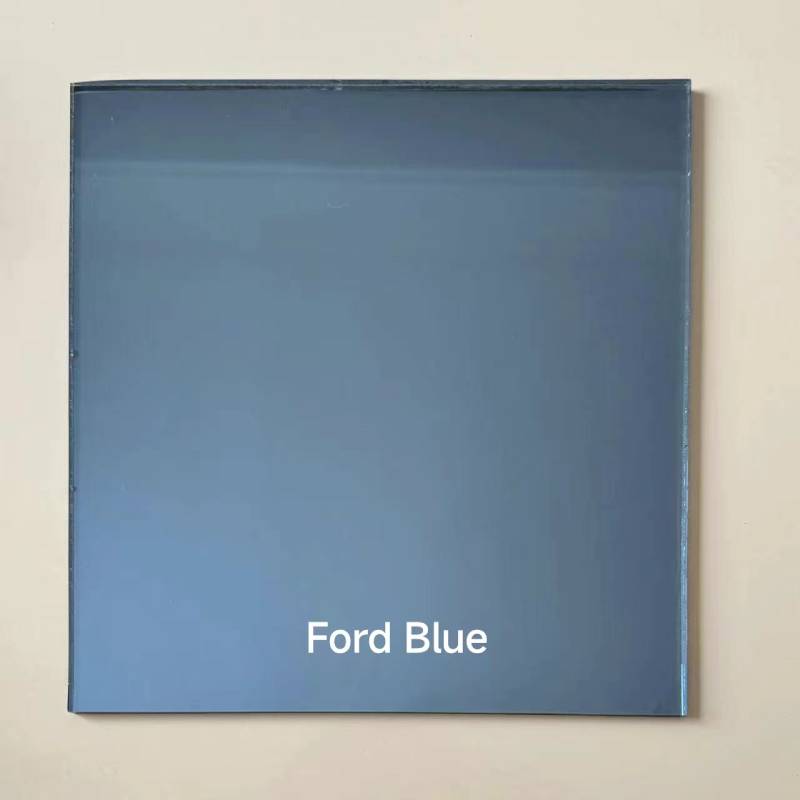

Understanding Thick Float Glass Properties, Applications, and Benefits
Thick float glass has emerged as a pivotal material in various industries, acclaimed for its excellent optical clarity, durability, and versatility. This article delves into the characteristics, manufacturing process, applications, and advantages of thick float glass, highlighting its significance in contemporary design and construction.
What is Thick Float Glass?
Float glass is produced through a process where molten glass is floated on a bed of molten tin. This method allows for the creation of sheets that are flat, smooth, and uniform in thickness. Thick float glass typically refers to glass sheets that are at least 6mm thick, although it can range significantly thicker, providing enhanced strength and structural integrity. The thickness not only improves the mechanical properties of the glass but also affects its thermal and acoustic insulation capabilities.
Manufacturing Process
The production of thick float glass begins with the careful selection of raw materials, primarily silica sand, soda ash, and limestone. These components are melted in a furnace at high temperatures, resulting in molten glass. This molten glass is then poured onto a layer of molten tin, where it spreads out and forms a flat sheet. The glass is then cooled and annealed to relieve internal stresses. After cooling, it is cut to desired dimensions, and additional processes like polishing, coating, or laminating can be employed based on specific requirements.
Properties of Thick Float Glass
1. Optical Clarity Thick float glass is renowned for its excellent transparency, making it suitable for applications where light transmission is critical. Its low distortion and minimal impurities contribute to its optical clarity.
2. Mechanical Strength The increased thickness provides enhanced resistance to impact and pressure, making it a durable choice for various architectural applications.
3. Thermal Insulation Thick glass can be engineered to improve thermal performance, helping to regulate indoor temperatures and enhance energy efficiency.
4. Acoustic Insulation The mass of thick float glass provides better sound insulation, making it an ideal choice for buildings located in noisy environments.

5. Aesthetic Appeal Its clean and modern appearance adds a touch of elegance to any design, making it a favorite in contemporary architecture.
Applications of Thick Float Glass
Thick float glass finds applications across various sectors
- Architecture and Construction Used for windows, facades, and skylights, thick float glass allows for natural light while providing structural strength and aesthetic appeal.
- Automotive In the automotive industry, thick float glass is employed for windshields and side windows, offering both safety and visibility.
- Furniture Design Thick glass is often used in the creation of tabletops, shelves, and other furniture items, providing a modern look while ensuring durability.
- Glass Partitions In office spaces, thick float glass is used for partitions and conference rooms, promoting open spaces while minimizing sound transmission.
- Safety and Security Laminated thick float glass can be used in applications requiring enhanced security, such as bank buildings, jewelry stores, and high-security facilities.
Benefits of Thick Float Glass
The advantages of thick float glass are multifaceted. Firstly, its durability and strength contribute to reduced maintenance costs over time. Secondly, due to its energy-efficient properties, it can contribute to lower heating and cooling costs, making it an environmentally friendly option. Additionally, its aesthetic flexibility allows designers to create striking visual elements, enhancing overall project appeal.
In conclusion, thick float glass is a remarkable material that combines functionality with design. Its unique properties and diverse applications make it an invaluable asset in modern construction and design. As sustainability and energy efficiency continue to be paramount in various industries, the role of thick float glass is likely to grow, paving the way for innovative architectural solutions.